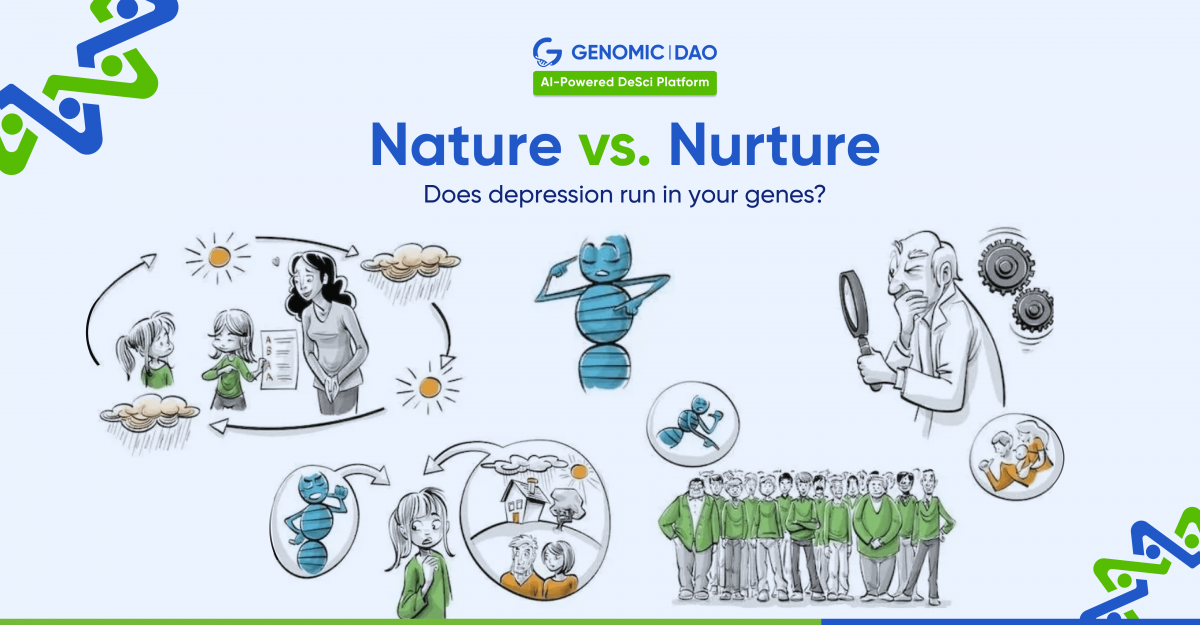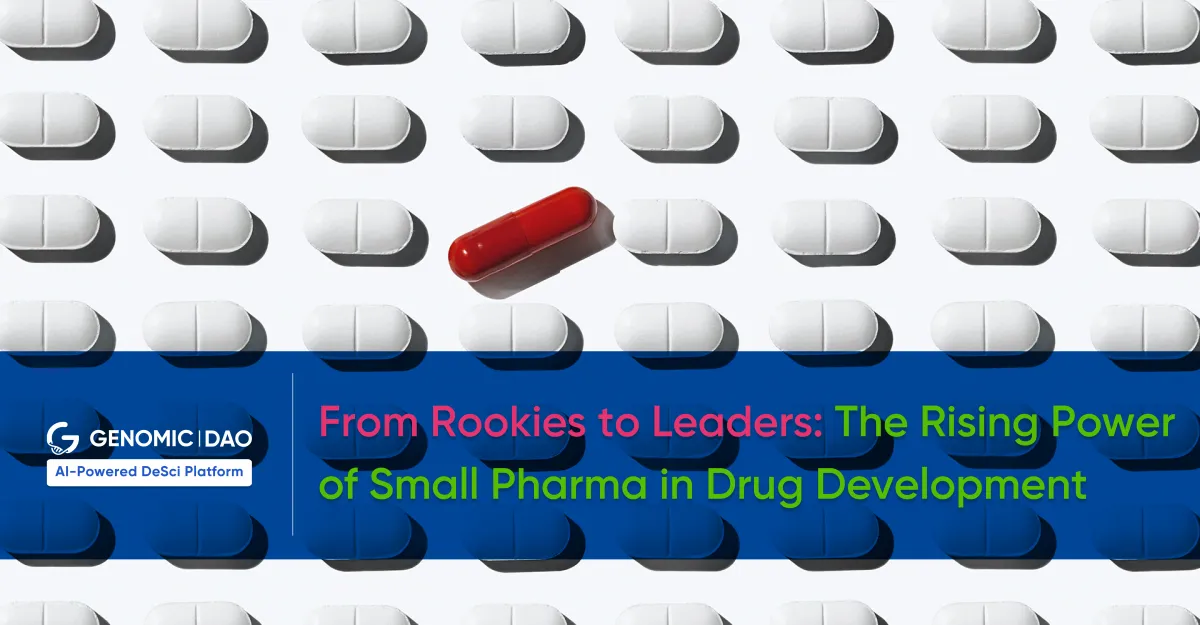
For certain individuals, mental health may be a fleeting consideration, whereas for others it may be a daily obstacle. Have you ever wondered why we all differ so much, why some of us appear to breeze through life while others face difficulties?
Mental illnesses have been studied for centuries, yet their causes are still not completely understood. One of the most debated topics in the field of mental health is the role of nature vs. nurture in the development of mental illnesses.
- Nearly 1 in 5 people live with a mental illness or will experience a mental illness in any given year (1)
- It affects people of all ages, education, income levels, and cultures (1)
- The prevalence of mental illness is higher in women (22.3%) than in men (15.1%) (1)
- By age 40, about 50% will have or have had, a mental illness (2)
The Debate of Nature vs. Nurture
Nature
Nature refers to our genetics, including the genes we are born with and other hereditary factors that can influence our personality and development from childhood to adulthood (3)
The nature argument suggests that mental illnesses are primarily caused by genetic factors. Studies have shown that some mental illnesses, such as schizophrenia and bipolar disorder, tend to run in families. This suggests that there may be a genetic component to these disorders. In addition, research has shown that certain genes may increase the risk of developing mental illnesses.
For instance, recent studies have shown that the risk of developing depression is higher in people with a specific variation in the serotonin transporter gene. This gene is involved in the regulation of serotonin, a neurotransmitter that plays an important role in mood regulation (4). Similarly, a study published in the Journal of the American Medical Association found that individuals with a genetic risk of schizophrenia were more likely to develop the disorder if they used cannabis during their teenage years (5).
Nurture
Nurture includes the environmental factors that can affect who we are. This includes our early childhood experiences, how we were raised, our social relationships, and the surrounding culture (6)
On the other hand, the nurture argument suggests that environmental factors play a larger role in the development of mental illnesses. Traumatic life experiences, such as abuse or neglect, can increase the risk of developing mental illnesses. In addition, exposure to toxins or infections during pregnancy can also increase the risk of mental health problems in offspring.
Studies have shown that adverse childhood experiences (ACEs) such as domestic violence, parental divorce, and physical or emotional abuse can have a profound impact on mental health. These experiences can lead to a range of mental health problems, including depression, anxiety, and post-traumatic stress disorder (PTSD) (7). In addition, research has shown that exposure to environmental toxins such as lead and mercury can increase the risk of developing ADHD and other neurodevelopmental disorders (8).
The case of Depression: Is it Genetic or Environmental?
Depression is known to run in families–people who have a direct relative (a parent or a sibling) who has been diagnosed with depression are up to three times more likely to develop depression (9).
Multiple studies conducted throughout the years reveal that inherited genes play an important role in the development of depression. However, there is no one gene that, when inherited, significantly increases the risk of depression. Several genes have a small influence on the development of depression. Results from a genome-wide association study (GWAS) that analyzed the health records of over 1.2 million people tell us that 178 gene variants can contribute to the genetic predisposition for depression (10)
However, researchers have established numerous environmental risk factors that contribute to depression, including:
- Upbringing: Children raised by depressed parents are at higher risk of developing depression or other mental illnesses later in life due to negative behavior changes in their parents
- Trauma: Emotional, physical, and sexual abuse during childhood increases the likelihood of developing depression.
- Negative lifestyle factors: Certain behaviors such as overworking, drug and/or alcohol abuse, and poor diet can contribute to depression.
- Major life events: Depressive episodes can be triggered by stressful life events such as job loss, divorce, or the loss of a loved one (11)
While some genes can increase the risk of developing depression, inheriting a gene does not necessarily mean you will develop the condition. If you inherit a gene linked to depression and are exposed to certain situations or trauma in your life, you may be more vulnerable to developing depression.
Researchers and healthcare providers need to consider both nature and nurture when studying and treating mental illnesses. By understanding the interplay between genetic and environmental factors, we can develop more effective interventions for people with mental health problems.
References
- Canadian Mental Health Association (CMHA) Fast Facts about Mental Illness. [Last accessed March 21, 2023]. Available from: https://cmha.ca/fast-facts-about-mental-illness.
- Nett RJ, Witte TK, Holzbauer SM, et al. Risk factors for suicide, attitudes toward mental illness, and practice-related stressors among US veterinarians. J Am Vet Med Assoc. 2015;247:945–955. [PubMed] [Google Scholar]
- Cherry, K. (2020) Genetics are just one part of how children develop, Verywell Mind. Verywell Mind. Available at: https://www.verywellmind.com/genes-and-development-2795114 (Accessed: March 21, 2023).
- Cherry, K. (2022) How different styles of Parenting Impact Children, Verywell Mind. Verywell Mind. Available at: https://www.verywellmind.com/parenting-styles-2795072 (Accessed: March 21, 2023).
- Alshaya, D.S. (2022) Genetic and epigenetic factors associated with depression: An updated overview, Saudi Journal of Biological Sciences. Elsevier. Available at: https://www.sciencedirect.com/science/article/pii/S1319562X22002273(Accessed: March 21, 2023).
- Patel, S. et al. (2020) The association between Cannabis use and schizophrenia: Causative or curative? A systematic review, Cureus. U.S. National Library of Medicine. Available at: https://www.ncbi.nlm.nih.gov/pmc/articles/PMC7442038/ (Accessed: March 21, 2023).
- Hughes, K. et al. (2016) Relationships between adverse childhood experiences and adult mental well-being: Results from an english national household survey — BMC public health, BioMed Central. BioMed Central. Available at: https://bmcpublichealth.biomedcentral.com/articles/10.1186/s12889-016-2906-3 (Accessed: March 21, 2023).
- Weissman MM, Wickramaratne P, Nomura Y, Warner V, Pilowsky D, Verdeli H. Offspring of depressed parents: 20 years later. Am J Psychiatry. 2006;163(6):1001–1008. https://pubmed.ncbi.nlm.nih.gov/16741200/.(Accessed: March 21, 2023).
- Lohoff FW. Overview of the genetics of major depressive disorder. Curr Psychiatry Rep. 2010;12(6):539–546. https://www.ncbi.nlm.nih.gov/pmc/articles/PMC3077049/. (Accessed: March 21, 2023).
- Levey DF, Stein MB, et al. Bi-ancestral depression GWAS in the Million Veteran Program and meta-analysis in >1.2 million individuals highlight new therapeutic directions. Nat Neurosci. 2021;24(7):954–963. https://pubmed.ncbi.nlm.nih.gov/34045744/. (Accessed: March 21, 2023).
- Woo, D.D. (2022) Nature vs nurture: Is depression genetic or environmental?, Madison Avenue TMS. Available at: https://www.madisonavetms.com/blog/nature-vs-nurture-which-is-more-likely-to-cause-depression/ (Accessed: March 21, 2023).






